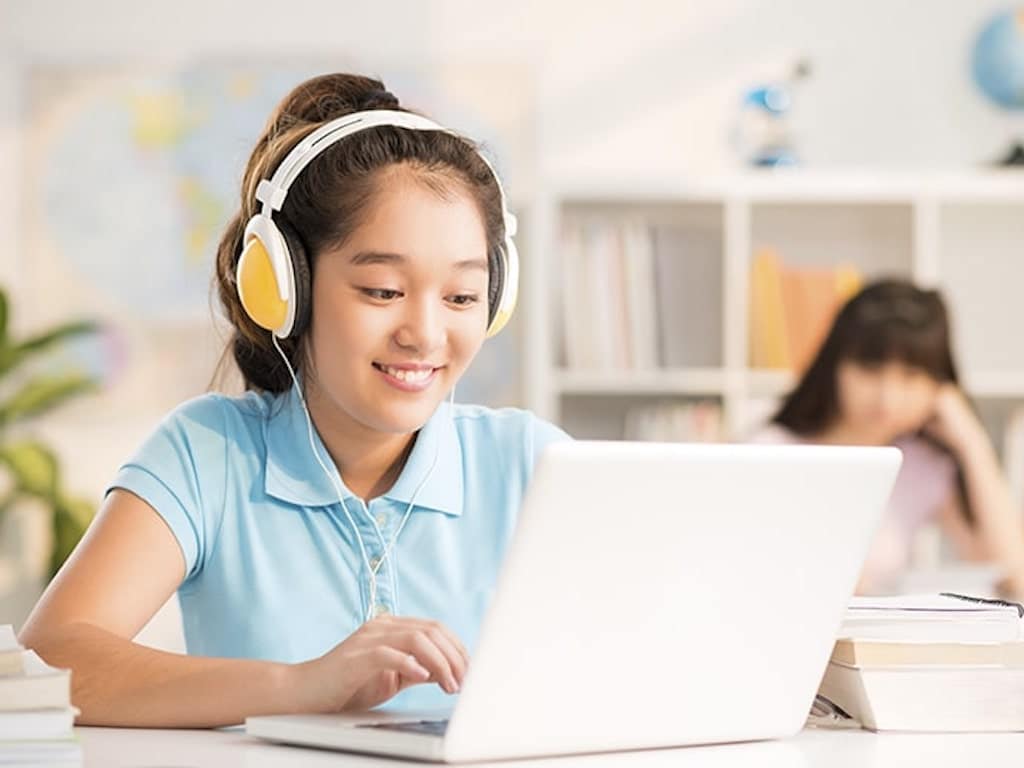ในขณะที่โรคระบาดยังคงแพร่ระบาดในละแวกบ้านของเรา จึงมีการพูดคุยกันมากมายเกี่ยวกับวิธีดูแลความปลอดภัยให้เด็กๆ เมื่อกลับมาโรงเรียน อย่างไรก็ตาม สุขภาพทางอารมณ์และจิตใจของนักเรียนในช่วงที่ต้องปรับตัวให้เข้ากับการกลับมาโรงเรียนก็ควรเป็นสิ่งสำคัญเช่นกัน การสนทนาทางออนไลน์ล่าสุดเกี่ยวกับวิธีที่ผู้ปกครองและครูอาจช่วยลดความเครียดทางอารมณ์และจิตใจในเด็ก นำโดย Sherlin Chang ผู้ช่วยผู้จัดการฝ่ายการศึกษาปฐมวัยของ Beaconhouse Malaysia และ Rachel Khong รักษาการผู้อำนวยการโรงเรียน Beaconhouse Newlands Early Years (BNEY) เมืองอัมปัง
ด้วยประสบการณ์ด้านการศึกษากว่า 30 ปี พวกเขาจึงมีความรู้โดยตรงมากมายเกี่ยวกับการทำงานกับเด็กๆ และ “ได้จัดการกับอุปสรรคและเรื่องเร่งด่วนต่างๆ มากขึ้นในปีที่ผ่านมา” ตามที่เชอร์ลินกล่าว ทั้งผู้ใหญ่และเด็กต่างก็ได้รับผลกระทบจาก COVID-19 เด็กๆ พบว่าเป็นเรื่องยากและลำบากอย่างยิ่งในการเปลี่ยนผ่านครั้งใหญ่จากการเรียนที่โรงเรียนไปสู่การเรียนทางไกลและการกลับมาเรียนที่โรงเรียนอย่างกะทันหัน
ผลกระทบของ COVID-19 ต่อเด็ก
การพัฒนาเด็ก
พัฒนาการทางสังคมและอารมณ์ได้รับผลกระทบมากที่สุด เด็ก ๆ มักจะเรียนรู้เกี่ยวกับสภาพแวดล้อมรอบตัวผ่านการสัมผัส ซึ่งเป็นเหตุผลว่าทำไมพวกเขาจึงเข้าใจสถานการณ์ปัจจุบันได้ยาก เด็กๆ สามารถสร้างความสัมพันธ์กับเพื่อนร่วมชั้นและผู้ใหญ่ผ่านการโต้ตอบด้วยการสัมผัส ที่โรงเรียน ครูต้องชี้แนะนักเรียนให้เว้นระยะห่างทางกายภาพ โดยเฉพาะในช่วงเริ่มต้น ก่อนที่นักเรียนจะคุ้นเคยกับขั้นตอนการปฏิบัติงานมาตรฐาน (SOP) เชอร์ลินกล่าวต่อว่า “ครูต้องเตือนนักเรียนเป็นประจำเป็นเวลาหลายเดือน
ศิลปะแห่งการลืมสิ่งที่เรียนรู้
การย้อนกลับการเรียนรู้ของเด็กเป็นความท้าทายอีกประการหนึ่ง เนื่องจากเด็กๆ ชอบที่จะแบ่งปันสิ่งของของตนกับเพื่อนๆ ก่อนเกิดโควิด ผู้ปกครองมักจะพบว่าดินสอสีหายไปจากกระเป๋าของเด็กๆ หรือยางลบที่ไม่เคยซื้อหล่นลงไปในกล่องดินสอ การแบ่งปันคือการเอาใจใส่เป็นสิ่งที่เน้นย้ำกับเด็กๆ เสมอ แต่ด้วยสถานการณ์การแพร่ระบาดและความจำเป็นที่จะต้องปฏิบัติตามมาตรฐานปฏิบัติ ครูจึงพยายามย้อนกลับบทเรียนนี้และช่วยให้เด็กๆ เข้าใจสถานการณ์ปัจจุบัน เพื่อป้องกันไม่ให้นักเรียนแบ่งปันสิ่งของกันเอง สิ่งหนึ่งที่ครูทำคือจัดเตรียมสิ่งของของตนเองในตะกร้าแยกกันให้กับนักเรียนแต่ละคน
ความเครียดจากการแยกทางในเด็กและผู้ปกครอง
ครูพบว่าเด็กๆ มีอาการวิตกกังวลจากการแยกจากพ่อแม่หลังจากอยู่บ้านกับพ่อแม่เป็นเวลาหนึ่งปี พ่อแม่เองก็มีอาการวิตกกังวลจากการแยกจากพ่อแม่เช่นกัน พวกเขารู้สึกไม่สบายใจเนื่องจากสภาพแวดล้อมในโรงเรียนแตกต่างจากความสะดวกสบายที่บ้าน พวกเขาจึงร้องไห้หรือหงุดหงิดเป็นผล
เด็กๆ ต้องพึ่งพาพ่อแม่และผู้ใหญ่คนอื่นๆ
เด็กเหล่านี้ต้องพึ่งพาพ่อแม่หรือผู้ดูแลคนอื่นๆ ที่คอยอยู่เคียงข้างพวกเขามาตลอดทั้งปี ดังนั้นพวกเขาจึงไม่สามารถทำกิจกรรมประจำวัน เช่น รูดซิปกระเป๋าหรือผูกเชือกรองเท้าได้
การเสพติดเทคโนโลยี
นอกจากนี้ พวกเขายังติดอุปกรณ์ต่างๆ อย่างรุนแรงอีกด้วย ปฏิเสธไม่ได้ว่าเทคโนโลยีและอุปกรณ์ต่างๆ ได้กลายมาเป็นเพื่อนที่ดีที่สุดของเด็กๆ นับตั้งแต่วิธีการเรียนรู้ของผู้คนได้เปลี่ยนไปในระบบการศึกษา เมื่อเด็กๆ กลับมาโรงเรียน ความยากลำบากเหล่านี้ได้เพิ่มพูนขึ้นเป็นความเครียดทางจิตใจและอารมณ์ เชอร์ลินกล่าวว่าการบอกกับเด็กๆ ว่านี่คือภาวะปกติใหม่นั้นเป็นเรื่องยาก บรรทัดฐานใหม่ซึ่งกำหนดให้เด็กๆ ปฏิบัติตามมาตรฐานการปฏิบัติงานและแยกกันอยู่ตามโต๊ะที่กำหนดให้ แตกต่างจากวิธีการเรียนปกติของพวกเขา สิ่งสำคัญคือทั้งผู้ปกครองและครูจะต้องตระหนักถึงสิ่งบ่งชี้ใดๆ ที่บ่งชี้ว่านักเรียนอาจอยู่ภายใต้ความเครียดทางจิตใจหรืออารมณ์ในช่วงเวลาแห่งการปรับตัวนี้
อาการและสัญญาณของความเครียดทางจิตใจและอารมณ์ในเด็ก
1. การร้องไห้กินเวลานานกว่า 10 นาที ซึ่งถือเป็นอาการร้องไห้ที่ไม่ปกติของเด็กๆ
2. พวกเขาไม่หิวอาหาร เชอร์ลินจำได้ว่าเคยเห็นเด็กๆ เลียช็อคโกแลตขณะเรียนที่บ้าน เพราะเธอสังเกตพฤติกรรมของเด็กๆ มาตั้งแต่เริ่มเรียนทางไกล จำเป็นต้องปรับเปลี่ยนพฤติกรรมบ้าง เพราะพฤติกรรมนี้ถูกปลูกฝังมาที่บ้าน ครูมักถูกถามว่า “ถึงเวลากินขนมเมื่อไหร่ ฉันหิว”
3. เด็กบางคนยังประสบปัญหาการขาดความมุ่งมั่นที่จะเรียนรู้ในห้องเรียนอีกด้วย "ฉันไม่รู้" และ "ฉันไม่ต้องการ" เป็นสำนวนที่ครูมักได้ยินจากนักเรียน
4. การพูดมากเกินไปเป็นอีกสัญญาณหนึ่งที่บ่งบอกว่าลูกของคุณกำลังอยู่ในภาวะเครียดทางจิตใจและอารมณ์ พวกเขามักจะขัดจังหวะเพื่อนและพูดคุยยาวๆ แม้ว่าจะไม่จำเป็นก็ตาม
5. การมีความสุขเป็นอาการเครียดอีกประการหนึ่งที่คุณอาจคาดไม่ถึง แม้ว่าการกระทำของพวกเขาจะดูเหมือนแสดงถึงความสุข แต่จริงๆ แล้วนี่เป็นเพียงกลไกที่ทำให้พวกเขาปกปิดความกลัวที่จะอยู่ในสถานที่แปลกหน้ากับคนที่พวกเขาไม่รู้จักเท่านั้น
6. พวกเขาไม่สามารถอยู่ในท่าเดิมได้เป็นเวลานาน ดังนั้น การใช้ห้องน้ำจึงเป็นเหตุผลที่ดีเยี่ยมที่ทำให้พวกเขาลุกขึ้นและเคลื่อนไหวร่างกายเพื่อคลายความวิตกกังวล
7. อ่อนเพลียผิดปกติ เนื่องจากความสามารถในการนอนหลับที่บ้านลดลง พวกเขาเคยชินกับการตื่นก่อนเวลาเรียน 15 นาที หลังจากใช้เวลาหนึ่งปีในการเรียนทางไกล พวกเขาต้องตื่นเช้าขึ้นหนึ่งชั่วโมงเพื่อไปเรียนวิชาพละศึกษา เพื่อที่จะได้อาบน้ำและเตรียมตัวไปโรงเรียน

ผู้ปกครองที่กำลังประสบปัญหาในการแก้ไขปัญหานี้ ควรดำเนินการดังนี้:
อย่าสั่งครับ
ในฐานะพ่อแม่หรือผู้ใหญ่ เรามักจะออกคำสั่งหรือพูดจาดูถูกเพื่อสื่อถึงเจตนาของเรา แม้ว่าคำเหล่านี้จะใช้ในชีวิตประจำวันของเราบ่อยครั้ง แต่คำว่า “ไม่” “อย่าทำอย่างนั้น” และ “หยุดนะ!” ล้วนเป็นคำเชิงลบ หากคุณต้องการห้ามไม่ให้ลูกทำบางอย่าง แทนที่จะตะโกนใส่พวกเขา ให้เสนอทางเลือกอื่นให้พวกเขาโดยพูดว่า “บางทีคุณน่าจะทำสิ่งนี้แทนการทำสิ่งนั้น” ด้วยวิธีนี้ เด็กๆ จะไม่รู้สึกกดดันให้ทำอะไร และสามารถยอมรับมันได้อย่างเต็มใจ
ส่งเสริมให้พวกเขาใช้แกดเจ็ตอย่างประหยัด
วิธีที่ง่ายที่สุดในการจัดการกับปัญหานี้คืออย่าบอกลูกของคุณว่าพวกเขาใช้เวลากับอุปกรณ์มากเกินไปและคุณต้องเอาโทรศัพท์หรือ iPad ของพวกเขาไป คุณควรสอนให้ลูกของคุณใช้เทคโนโลยีอย่างมีความรับผิดชอบในฐานะผู้ใหญ่ ซึ่งสามารถทำได้โดยการสร้างตารางเวลาพร้อมกิจวัตรประจำวันโดยละเอียดสำหรับการใช้งานอุปกรณ์บางอย่างที่ได้รับอนุญาต ซึ่งจะนำไปสู่ประเด็นต่อไป
กำหนดเวลาของคุณที่บ้าน
แม้ว่าเราไม่อยากให้เด็กๆ รู้สึกอึดอัดเมื่ออยู่ที่บ้าน แต่การมีตารางเวลาจะช่วยให้ลูกของคุณปรับตัวเข้ากับตารางเวลาที่โรงเรียนได้เป็นอย่างดี จะใช้ตารางเวลาที่บ้านได้อย่างเต็มที่อย่างไร เชอร์ลินแนะนำให้ผู้ปกครองใช้ตารางเวลาแบบมีภาพกับลูกๆ ของตน เนื่องจากเด็กๆ มองว่ารูปภาพและสีนั้นน่าสนใจมากกว่า ตารางเวลายังช่วยส่งเสริมความเป็นอิสระและการควบคุมตนเองของลูกๆ ได้ โดยเฉพาะอย่างยิ่งเมื่อถึงเวลาเข้านอน
อนุญาตให้พวกเขารู้สึกเครียดเพื่อที่พวกเขาจะสามารถจัดการกับมันได้
พ่อแม่ควรปล่อยให้ลูกๆ เผชิญกับความเครียด เพราะความเครียดเป็นความรู้สึกปกติของมนุษย์ ดังนั้น เพื่อให้เข้าใจความต้องการทางอารมณ์และจิตใจของพวกเขาได้ดีขึ้น คุณมีหน้าที่ต้องช่วยให้พวกเขารับรู้และรับมือกับความรู้สึกเหล่านี้ คุณจะสามารถช่วยพวกเขาเลือกทางเลือกที่ดีต่อสุขภาพเพื่อให้พวกเขาปลดปล่อยอารมณ์นั้นออกไปได้ด้วยการปล่อยให้พวกเขารู้สึกถึงความรู้สึกนั้น
เปิดใจ.
การเป็นผู้ฟังที่ดีในฐานะพ่อแม่ถือเป็นสิ่งสำคัญในการแก้ไขปัญหานี้ พ่อแม่ต้องตั้งใจฟังเพื่อทำความเข้าใจและตอบสนองอย่างเหมาะสม ในอนาคต บุตรหลานของคุณอาจหยุดเล่าให้คุณฟังหากรู้สึกว่าคำตอบของคุณดูไม่ใส่ใจ ส่วนใหญ่แล้ว หากได้รับการพูดคุยอย่างอ่อนโยนและจริงใจ เด็กๆ ที่มีปัญหาก็จะยินดีที่จะเปิดใจ พวกเขาจะได้มีโอกาสพูดคุยเกี่ยวกับปัญหาของตนเองโดยตอบคำถามพื้นฐาน เช่น "วันนี้เป็นไงบ้าง" และ "ที่โรงเรียนเป็นยังไงบ้างกับเพื่อนๆ และการเรียน" เด็กๆ จำเป็นต้องรู้สึกอิสระที่จะแสดงอารมณ์ของตน ดังนั้น พ่อแม่และครูจึงต้องส่งเสริมสภาพแวดล้อมดังกล่าว
โดยรวมแล้ว เพื่อแก้ไขปัญหาเหล่านี้และหาแนวทางแก้ไข ผู้ปกครองและครูจะต้องร่วมมือกันอย่างใกล้ชิด ในขั้นตอนนี้ การประสานงานระหว่างทั้งสองฝ่ายมีความสำคัญอย่างยิ่งเพื่อให้แน่ใจว่านักเรียนจะรักษาตารางเรียนปกติได้แม้ว่าจะเรียนทางไกล คุณอาจพิจารณาส่งนักเรียนไปเรียนพิเศษตัวต่อตัวเพื่อให้ทันกับหลักสูตรที่เรียน รับตารางเรียนที่ยืดหยุ่นพร้อมบทเรียนส่วนตัวที่ปรับแต่งให้เหมาะกับความต้องการในการเรียนรู้ของคุณ เชื่อมต่อกับผู้สอนและผู้ให้คะแนนระดับแนวหน้าจากหลักสูตรนานาชาติและมหาวิทยาลัยได้ที่นี่วันนี้ พบกับเราได้ที่ www.tigercampus.com.my
ลงทะเบียนทดลองใช้งานฟรีวันนี้!: https://www.tigercampus.com.my/free-trial/
ติดต่อเราทาง Whatsapp เพื่อสอบถามข้อมูลทันที: +6016-247 3404 https://wa.link/avrou0








